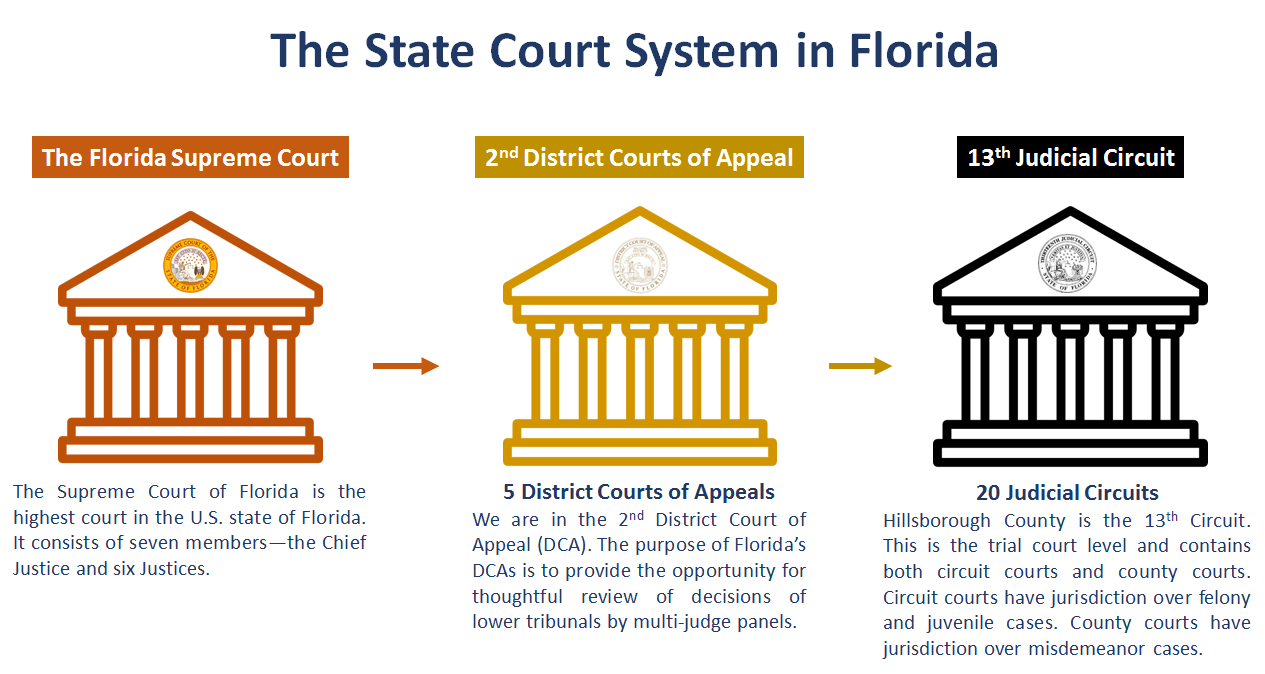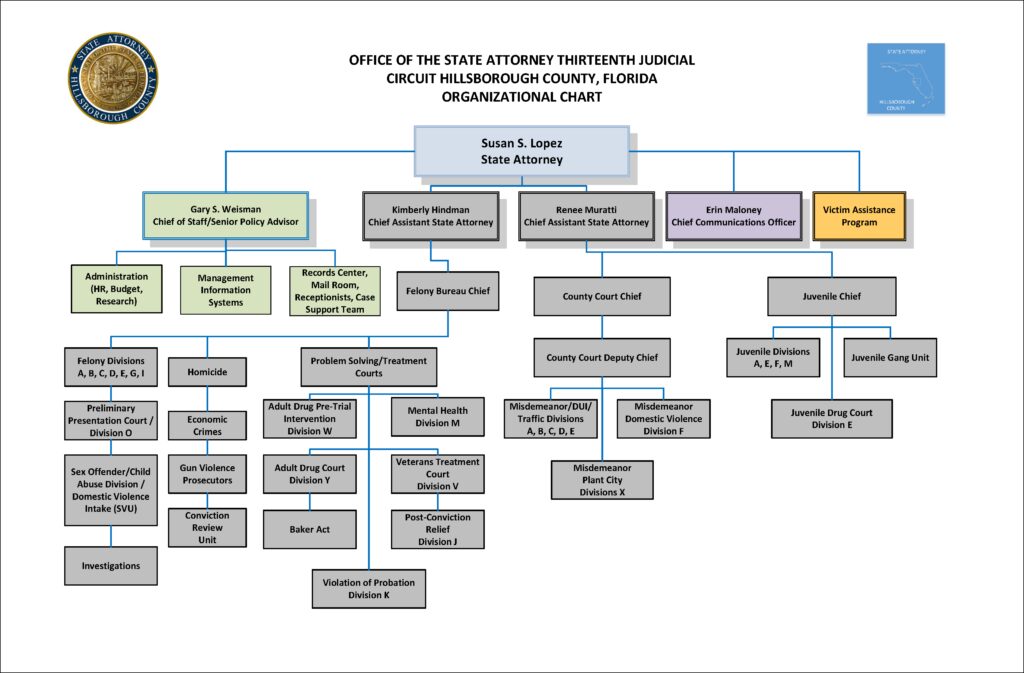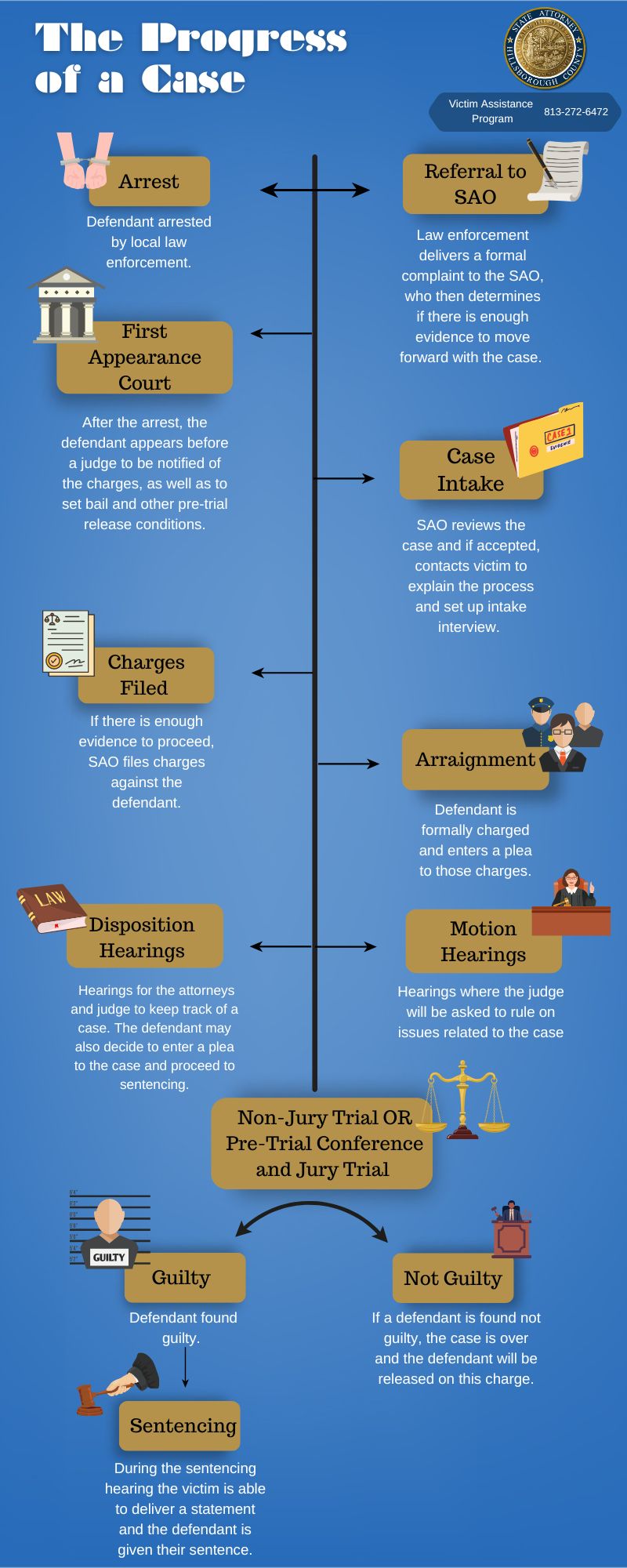The Office of the State Attorney for the Thirteenth Judicial Circuit is responsible for prosecuting all criminal violations of state law that occur throughout the Circuit, which encompasses all of Hillsborough County, including the incorporated cities of Tampa, Temple Terrace, and Plant City. Led by State Attorney Susan S. Lopez, our office consists of 292 dedicated public servants, including 132 Assistant State Attorneys and 160 victim advocates, investigators, administrators, paralegals, receptionists, and other support staff. In addition to the primary responsibility of prosecuting criminal offenses, our office is actively involved in a variety of community organizations dedicated to preventing crime, reducing recidivism, and supporting victims. Our office also proactively engages in the community in order to improve communication, facilitate transparency, and promote trust with the citizens of Hillsborough County.

What is the difference between a misdemeanor and a felony?
Felonies are more serious crimes with higher potential punishments. Both can also result in imprisonment. If the law provides for imprisonment for longer than a year, it is a felony. If the potential maximum punishment is up to one year in jail, then the crime is a misdemeanor. Felonies and misdemeanors are also given a degree which further explains how serious the crime is. The most serious degree of crime is a capital crime and the least serious is a second degree misdemeanor.
Criminal v. Civil
The State Attorney is an elected officer who represents the people in both capital and non-capital prosecutions for violations of state laws and related matters in state courts.
- A crime is an act or omission for which the State legislature has designated a penalty that may include prison, jail, probation, and/or a fine.
- A civil action is the enforcement of a personal cause of action like a contract dispute, negligence action, divorce, and child custody, to name a few.
Some matters that may be the basis of a civil action could also be prosecuted as crime. For example: battery –> civil action for injury and criminal for the act


